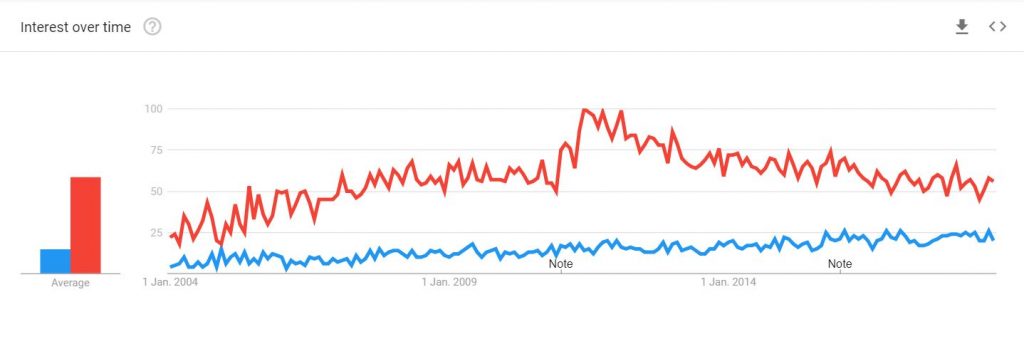The Curiosity of the German Word “Spannend” Posted by Sten on Nov 2, 2018 in Culture, Language
noAn interesting lecture that you would like to attend – let’s hope it is spannend! A movie that you watched on Halloween – spannend! This German word has two different meanings: exciting, thrilling; and interesting. However, what baffles me is how it is used – for basically anything and everything! Let’s look at this word today.
Click here for previous entries in the series on curious words in German
Spannend as a word
The word spannend does not only refer to “exciting” things. It is also the adjective form of things on tension. For example, barely fitting pants can be eine spannende Hose (though it could also be that you somehow find it mysteriously exciting, of course). You also use the verb spannen to put tension on something.
How is it used?
Spannend was originally used to describe exciting, scary or thrilling things. Movies, books, sports events… you get it. However, it is nowadays used to describe close to anything. A mundane Lesung (lecture)? Spannend. Your Reise (trip) to South Germany? Spannend. Some would go as far as calling Gemüse (vegetables) spannend.
So what is it about this word that makes it so ubiquitous?
Vague
Spannend is a great word to make something sound interesting and exciting at the same time. So you could say interessant – but why not use spannend, implying an enthralling story? That is where the word’s journey started and became popular. Where it is now almost identical to the word interessant – yet it is no longer used to describe experiences as much as spannend.
There have been critical voices on the increasing use of the word, such as this, here and here. And they all have a common criticism: By using the adjective spannend instead of other adjectives, any value that could have been conferred gets lost. Spannend, ironically, does not come with any emotion, such as a sad event.
What do you think of using this word? Let me know what you think in the comments below!

Build vocabulary, practice pronunciation, and more with Transparent Language Online. Available anytime, anywhere, on any device.






